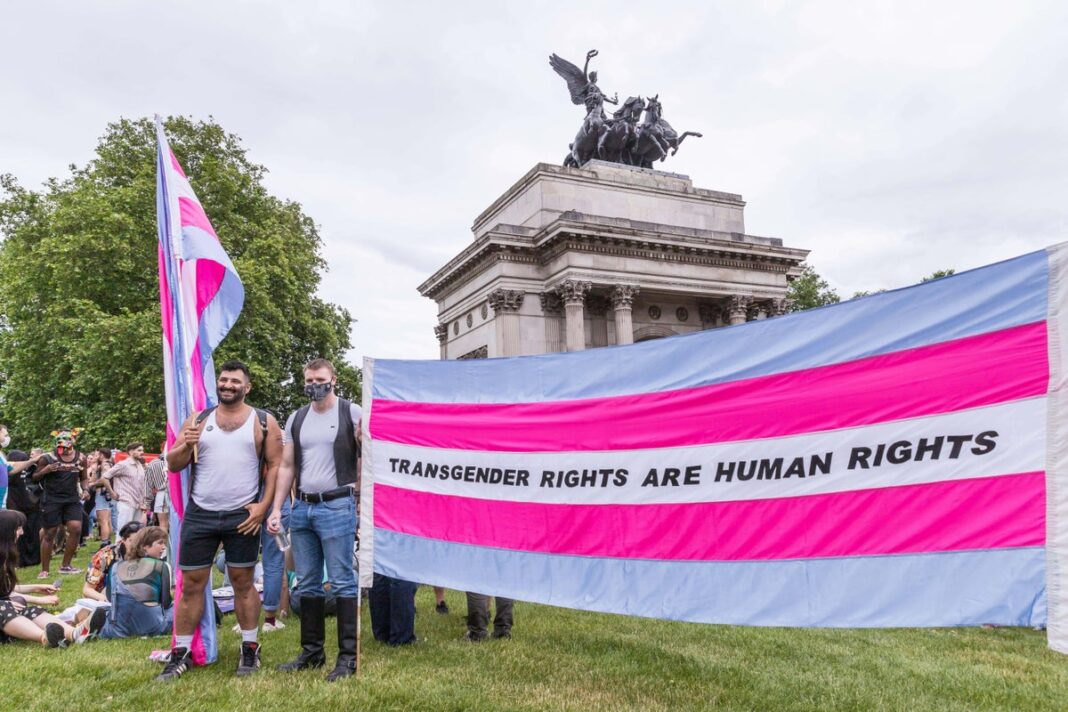The Daily Observer London Desk: Reporter- Sarah Marshal
Transgender hate crimes have increased by 11% in England and Wales, according to new data.
Statistics from the Home Office found transgender hate crimes increased by to 4,732 offences in the year ending March 2023.
The rise could be partly down to public discussion by politicians, the Home Office said.
“What we’re seeing in today’s Britain is a horrifying reality of anti-trans narratives that are spreading across media and from high profile politicians, and the Home Office themselves have admitted it is a likely cause of rising violence,” Robbie de Santos, director of external affairs at LGBTQ+ charity Stonewall, told the PA news agency.
“We can’t be complacent about any sort of divisive or dehumanising rhetoric, or failure to deliver on policy to protect our communities.
“As a survivor of a violent attack myself, I want everyone to know you’re not in this alone. We’ve proven time and time again, that when we come together as a community we can demand and create true change.”
The data comes a day after the prime minister Rishi Sunak weighed in on the debate around transgender rights at the Conservative Party Conference.
“We shouldn’t get bullied into believing that people can be any sex they want to be. They can’t, a man is a man and a woman is a woman. That’s just common sense,” Sunak said.
Health Secretary Steve Barclay used his speech at the conference to propose a ban on trans women from female NHS wards.
With many members of the transgender community feeling threatened, what can you do to support anyone struggling?
Ambassadors for LGBTQ+ young people’s charity Just Like Us share their advice for allies…
Talk about it
Your loved ones may not know anyone who is trans, or understand what it means to be transgender.
“I need friends and family to keep talking and taking a stand against transphobia,” explains Charlie Hall, 25.
“Talk about it with your colleagues, friends and family. Trans people are a small minority and allies need to take action, show others that trans people exist and are just trying to live their lives.”
Matty Robins, 20, adds: “Personally, my friends reposting Instagram posts from transgender people in need, or anything about Trans Day of Visibility [March 31] or Trans Day of Remembrance [November 20], for example, has been one of the biggest displays of allyship to me.”
Reach out
Every trans person may be facing something different.
“Ask us how you can support us. Every person is an individual and reacts differently to the situation and therefore needs different kinds of support,” explains 22-year-old Carden Cappi.
Challenge hate and discrimination
“Trans people need allies standing up for us,” explains Robins.
This could include: “Correcting people when they deadname (using the name someone was assigned at birth) or misgender a trans person, whether the trans person is there or not. Fighting for trans inclusion at school, university and in the workplace.”
Instead of “calling out” someone, which Robins says can be “inflammatory and cause people to turn away from transgender allyship”, he recommends talking to them about what they just said.
“They may not mean it or understand how something they say is perceived as transphobic.”
Be willing to learn
“Friends and family can be supportive by educating themselves,” explains Charlie Middleton, 24.
There are lots of resources out there to help you learn more about the trans community.
Books like The Transgender Issue by Shon Faye (Penguin, £10.99) and Juno Dawson’s The Gender Games: The Problem With Men and Women, From Someone Who Has Been Both (Two Roads, £10.99) are well worth a read.
You can also follow trans activists on social media – including Charlie Craggs and Munroe Bergdorf – to learn more about the community.



